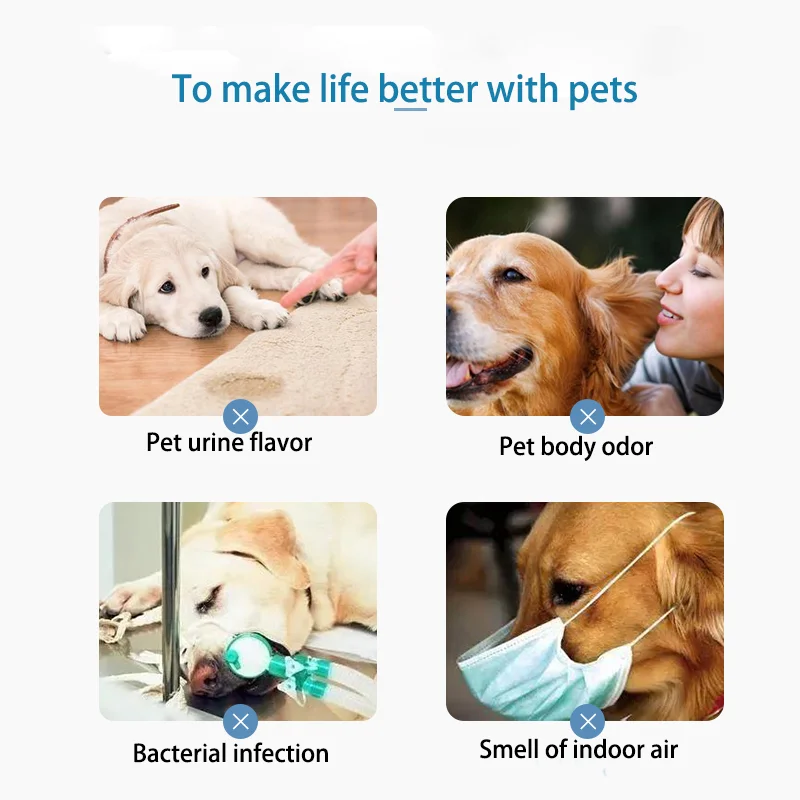Do Air Purifiers Help with Pet Allergies: A Comprehensive Guide
Guide or Summary:Pet Allergies: The BasicsHow Air Purifiers WorkDo Air Purifiers Help with Pet Allergies?Choosing the Right Air PurifierAdditional Tips for……
Guide or Summary:
- Pet Allergies: The Basics
- How Air Purifiers Work
- Do Air Purifiers Help with Pet Allergies?
- Choosing the Right Air Purifier
- Additional Tips for Managing Pet Allergies
Pet allergies affect millions worldwide, causing everything from sneezing and itching to more severe symptoms like asthma. As pet owners, it's natural to wonder if there's a simple solution to reduce these uncomfortable symptoms. Enter air purifiers: these devices have become increasingly popular for their ability to improve indoor air quality. But do air purifiers help with pet allergies? Let's delve into the evidence and explore how these devices can play a role in managing pet allergies.
Pet Allergies: The Basics
Before we discuss air purifiers, it's essential to understand what causes pet allergies. Pet allergens are proteins found in the skin cells, saliva, urine, and dander of pets like cats, dogs, and rabbits. When these allergens are shed into the air, they can trigger allergic reactions in sensitive individuals. The severity of symptoms can vary, but for many, it's an ongoing challenge that affects their daily lives.
How Air Purifiers Work
Air purifiers work by filtering the air in a room, removing particles, allergens, and contaminants. They achieve this through various filtration methods, including HEPA filters, activated carbon filters, and UV-C light. HEPA filters are particularly effective at capturing small particles, including pet dander and allergens.

Do Air Purifiers Help with Pet Allergies?
The evidence suggests that air purifiers can be effective in reducing pet allergy symptoms. By removing pet allergens from the air, these devices can decrease the amount of exposure to these irritants. Studies have shown that air purifiers can significantly reduce the concentration of pet dander and allergens in indoor environments.
However, it's important to note that air purifiers are not a standalone solution. They should be used in conjunction with other allergy management strategies, such as regular vacuuming, pet grooming, and keeping pets out of certain areas of the home.
Choosing the Right Air Purifier
Not all air purifiers are created equal when it comes to managing pet allergies. Look for devices with HEPA filters, as these are the most effective at capturing small particles. Additionally, consider the size of the room you're purifying. A larger room will require a more powerful air purifier to ensure adequate air circulation.

Additional Tips for Managing Pet Allergies
While air purifiers can be a valuable tool in managing pet allergies, they are not a cure-all. Here are some additional tips for reducing allergy symptoms:
- Regular vacuuming: Use a HEPA vacuum cleaner to pick up pet dander and allergens from carpets, upholstery, and other surfaces.
- Pet grooming: Regular brushing and bathing can help reduce the amount of dander pets shed.

- Keep pets out of certain areas: Designate certain rooms as off-limits to pets to reduce exposure to allergens.
In conclusion, air purifiers can be an effective tool in managing pet allergies, but they should be used in conjunction with other allergy management strategies. By choosing the right air purifier and implementing additional measures to reduce exposure to pet allergens, pet owners can enjoy a more comfortable and allergy-free environment.